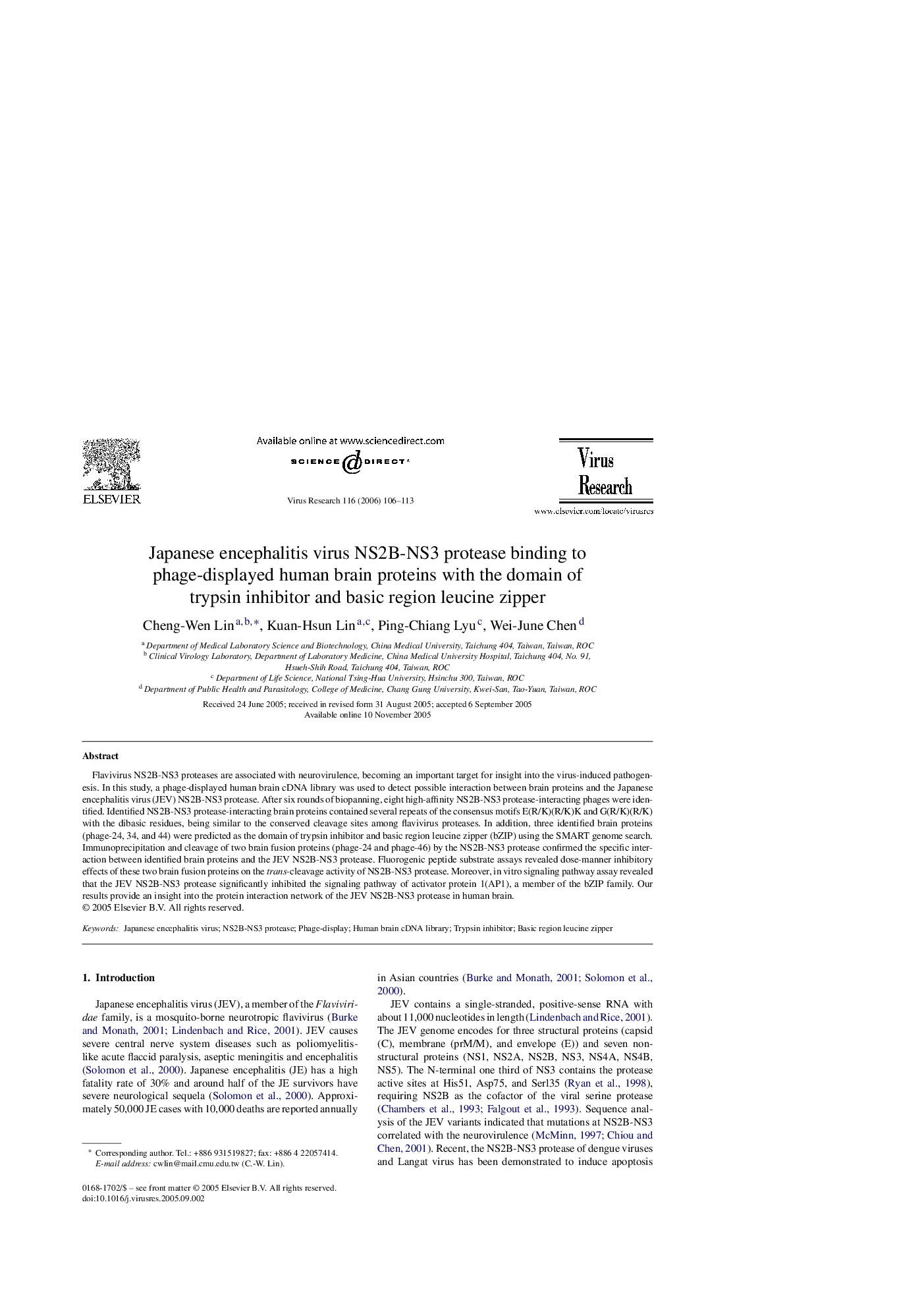| Article ID | Journal | Published Year | Pages | File Type |
|---|---|---|---|---|
| 3431451 | Virus Research | 2006 | 8 Pages |
Flavivirus NS2B-NS3 proteases are associated with neurovirulence, becoming an important target for insight into the virus-induced pathogenesis. In this study, a phage-displayed human brain cDNA library was used to detect possible interaction between brain proteins and the Japanese encephalitis virus (JEV) NS2B-NS3 protease. After six rounds of biopanning, eight high-affinity NS2B-NS3 protease-interacting phages were identified. Identified NS2B-NS3 protease-interacting brain proteins contained several repeats of the consensus motifs E(R/K)(R/K)K and G(R/K)(R/K) with the dibasic residues, being similar to the conserved cleavage sites among flavivirus proteases. In addition, three identified brain proteins (phage-24, 34, and 44) were predicted as the domain of trypsin inhibitor and basic region leucine zipper (bZIP) using the SMART genome search. Immunoprecipitation and cleavage of two brain fusion proteins (phage-24 and phage-46) by the NS2B-NS3 protease confirmed the specific interaction between identified brain proteins and the JEV NS2B-NS3 protease. Fluorogenic peptide substrate assays revealed dose-manner inhibitory effects of these two brain fusion proteins on the trans-cleavage activity of NS2B-NS3 protease. Moreover, in vitro signaling pathway assay revealed that the JEV NS2B-NS3 protease significantly inhibited the signaling pathway of activator protein 1(AP1), a member of the bZIP family. Our results provide an insight into the protein interaction network of the JEV NS2B-NS3 protease in human brain.
